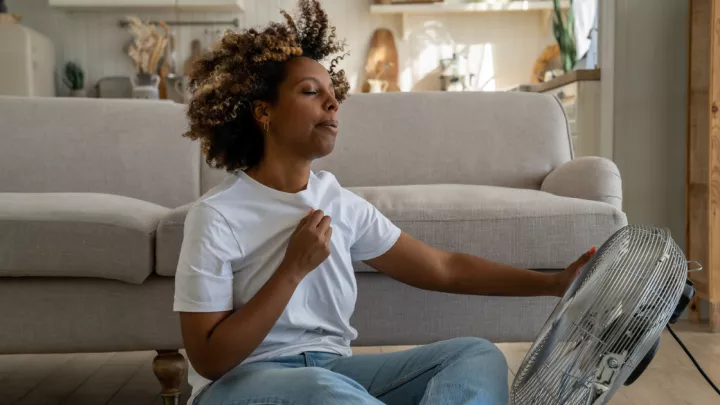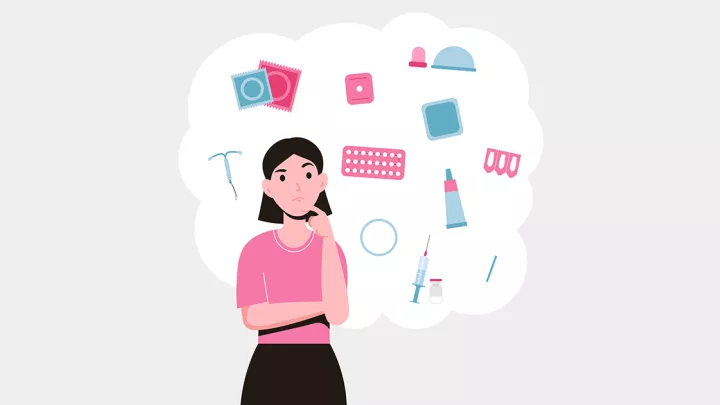9 home remedies for UTIs: How to get rid of bladder infections

Urinary tract infections in women are extremely common. Not only is the urethra short; the close proximity to the vagina and anus (both of which aren’t meant to be sterile) makes it prone to infection. And because urinary tract infections occur so easily, questions about them do too. Here is some clarification about them to help dispel myths.
Symptoms of a UTI
These symptoms are comon for normal UTIs – an acute, uncomplicated bladder infection. A urine sample can diagnose a UTI and antibiotics can treat them.
Symptoms include:
- Frequent urination
- Pain while voiding (peeing)
- Bloody or cloudy urine
- A feeling of needing to void all the time
What symptoms are concerning?
The urinary tract also includes the ureters and kidneys. If the kidneys get infected, that can mean fever, back or flank pain, nausea and vomiting, or other signs of whole-body illness. Kidney infection can lead to sepsis quickly and should not be ignored.
Antibiotics for UTIs that are more frequent
Women with recurrent UTIs can use antibiotics. Recurrent means two or more UTIs in six months or three or more in 12 months.
Three proven antibiotic methods to prevent or treat recurrent UTIs include:
- One pill after sex
- Antibiotic refills for when symptoms come
- A small dose every day
How to prevent UTIs: Home remedies that work
Some home remedies for UTIs really do work, like drinking more water, changing your birth control method and using vaginal estrogen.
- Drinking enough water. In a study of premenopausal women with recurrent UTIs, drinking 1.5 liters more than they usually did decreased UTI occurrence by half. Literally rinsing out the bacteria prevents it from taking hold as often. One and a half liters is about 50 ounces of water, so drink up.
- Check your birth control method. Spermicides, diaphragms and condoms with spermicides on them all contribute to more UTIs than when women use other methods. Other methods don’t add to UTI frequency or severity. Read about the pros and cons of various birth control methods.
- Vaginal estrogen for postmenopausal women. After menopause, the vulvar skin thins, the pH of the vagina rises (becomes more neutral) and the risk of bladder infection gets much higher. Vaginal estrogen helps reverse those changes and certainly reduces the frequency of recurrent UTIs. If you’re interested in starting vaginal estrogen, call 800.922.0000 to make an appointment with your OB-GYN.
Unproven home remedies (or waiting for more evidence)
There’s not enough scientific evidence to support the following UTI methods – although many of them don’t hurt.
- Cranberry juice. The active ingredient in cranberry is supposed to bind to the wall of the bladder in the same way that bacteria can, blocking the bacteria from catching hold. Unfortunately, when the studies are put together, it doesn’t really work at preventing infection, and it definitely doesn’t help the body fight bacteria that has already established an infection. So drink cranberry juice if you like it, but not as a prevention or treatment of bladder infections.
- Peeing (or voiding) after sex. Peeing after intercourse has long been taught, but it has never actually been studied. We know that sex can push bacteria into the urethra. We also know that it can irritate the female urethra, even without the bacteria. Voiding after sex to push out bacteria is likely helpful, and certainly isn’t harmful, but it has never been proven.
- Hygiene. We have long taught girls to wipe from front to back, but again, this has never been studied. Common sense certainly says that directly applying bacteria to the urethra is a bad idea.
- D-mannose. This is a naturally occurring sugar that has the same hope as cranberry juice: to bind to the bladder wall so that bacteria can’t, all while not causing other trouble. This is more promising, and studies are in progress to prove whether this will work and at what dose. So far, it’s too early to say for sure.
- Probiotics. Probiotics may help in other ways, but they don’t help for bladder infection prevention. And they definitely don’t help with the treatment of an existing infection.
- Methenamine salts. In the urine, these are turned into formaldehyde, which is believed to help kill bacteria. This hasn’t been proven in large-scale studies and its safety hasn’t been proven over time yet. Still, the early data is promising, and studies are underway.
UTIs are uncomfortable and inconvenient, but the good news is they’re treatable.
If you’ve tried a home remedy that didn’t work, or you want to skip straight to a proven treatment of antibiotics, see your OB-GYN. We deal with these types of concerns all the time and can help you feel better in no time.
UTIs are treatable. Call 800.922.0000 to make an OB-GYN appointment.







